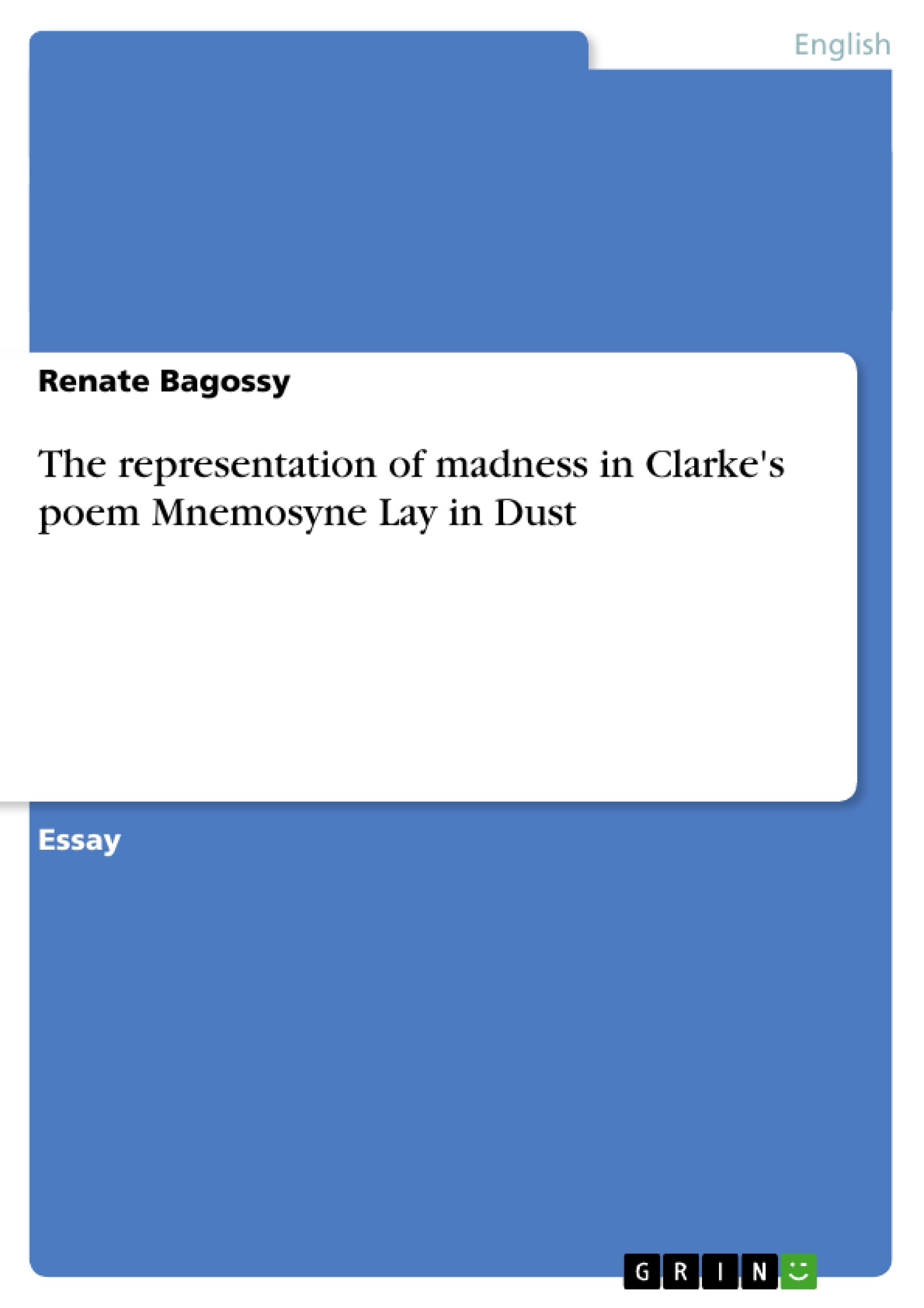In his narrative poem Mnemosyne Lay in Dust, Austin Clarke writes about a personal experience, which he has made some 50 years before he first published this poem, when he suffered a mental breakdown. Although, it is his own experience, he does not write in first person but uses a protagonist, Maurice Devane, and presents this trauma in third person to the reader. This could be, because this experience, even if it has happened half a century ago, is a very personal one and using a third person narrator possibly makes it easier for him to write about it. The protagonist Maurice Devane experiences the loss of self: he looses his memory, he does not know himself any more.
Table of Contents
- The Representation of Madness in Clarke's Poem
- The Journey to the Hospital
- The Ordeal in the Hospital
- Leaving the Hospital
Objectives and Key Themes
This analysis of Austin Clarke's poem "Mnemosyne Lay in Dust" aims to explore the representation of madness within the context of a personal experience. The poem recounts the author's own mental breakdown, using a third-person protagonist, Maurice Devane, to narrate his journey through the trauma.
- The Loss of Self and Identity
- The Depersonalizing Effects of Institutionalization
- The Blur Between Reality, Memory, and Hallucination
- The Power of Observation and Perception in Madness
- The Importance of Human Connection and Hope for Recovery
Chapter Summaries
The poem can be divided into three parts: the journey to the hospital, the ordeal in the hospital, and the departure from the hospital as a healthy man.
- The Journey to the Hospital: The first part of the poem describes the protagonist's initial descent into madness, characterized by the loss of memory and a sense of alienation from his own identity.
- The Ordeal in the Hospital: The second part focuses on Maurice Devane's experiences within the hospital, where he is subjected to brutal and uncomprehending treatment. This section explores the themes of confinement, depersonalization, and the blurring of reality and hallucination as Maurice struggles to regain his sanity.
- Leaving the Hospital: The third part of the poem, which describes the protagonist's recovery and release from the hospital, is not included in this preview.
Keywords
This analysis focuses on the representation of madness, mental breakdown, institutionalization, loss of identity, perception, memory, hallucination, and recovery in Austin Clarke's poem "Mnemosyne Lay in Dust."
Frequently Asked Questions
What is the central theme of Austin Clarke's "Mnemosyne Lay in Dust"?
The poem explores the representation of madness and mental breakdown, specifically focusing on the protagonist's loss of memory and self-identity.
Why does Clarke use a third-person narrator for a personal experience?
By using the protagonist Maurice Devane instead of the first person, Clarke creates a distance that likely made it easier to write about his own traumatic mental breakdown from 50 years prior.
What are the three main parts of the poem?
The narrative follows the journey to the hospital, the ordeal and treatment within the institution, and the eventual departure and recovery.
How is institutionalization depicted in the poem?
It is shown as a depersonalizing and often brutal experience where the boundary between reality, memory, and hallucination becomes blurred for the patient.
What does the name "Mnemosyne" signify?
Mnemosyne is the Greek goddess of memory. The title "Mnemosyne Lay in Dust" symbolizes the shattering and loss of memory that occurs during a mental breakdown.
- Quote paper
- Renate Bagossy (Author), 2001, The representation of madness in Clarke's poem Mnemosyne Lay in Dust, Munich, GRIN Verlag, https://www.hausarbeiten.de/document/26389


